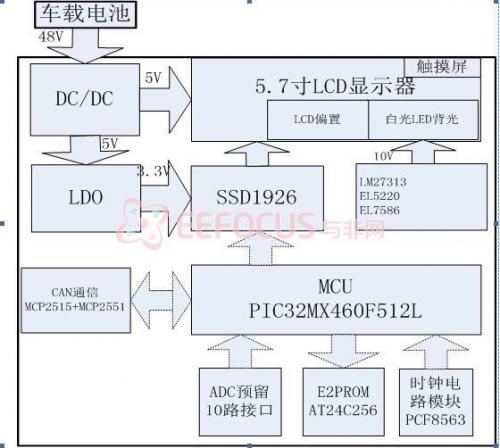C語言的那些小秘密之鏈表(二)
從main()函數(shù)開始,通過 DList* dlist = dlist_head_create();我們創(chuàng)建了一個頭節(jié)點。值得注意的是,為了鏈表更加通用和符合實際需求,我們在此創(chuàng)建的鏈表存放的是結(jié)構(gòu),因為現(xiàn)實中在使用鏈表時,絕大部分都是存放結(jié)構(gòu)的,而前一篇文章中我們創(chuàng)建單鏈表時我們存放的是數(shù)據(jù),所以這一點讀者是要引起注意的,接下來是一個for循環(huán)語句,在for循環(huán)語句中我們首先使用DStu* stu =(DStu*) malloc(sizeof(DStu));為stu分配了空間,這也是很多讀者的一個易錯點,不分配就使用下面的stu->score = i;語句,從而導(dǎo)致出錯,如果讀者對于指針還不是很了解的話可以看看我前面的文章《C語言的那些小秘密之指針》,在往下看dlist_append(dlist, (void*)stu);語句,從函數(shù)名稱我們也可以看出它的功能是在鏈表的末端添加結(jié)點的,在函數(shù)里面我們使用了一個if判斷語句來看分配的結(jié)點是否成功,如果成功繼續(xù)往下執(zhí)行,如果失敗則返回DLIST_RETURN_FAIL。對于第一次分配的節(jié)點我們使用了 thiz->head = node;語句使其變?yōu)轭^結(jié)點,在第二次調(diào)用dlist_append(dlist, (void*)stu)函數(shù)分配結(jié)點之后,由于頭結(jié)點已經(jīng)不再為空,那么跳過if(thiz->head == NULL)語句,執(zhí)行以下語句:
本文引用地址:http://www.104case.com/article/272382.htmcursor = thiz->head;
while(cursor != NULL && cursor->next != NULL)
{ cursor = cursor->next; }
其功能為查找末端結(jié)點,然后使用 cursor->next = node; node->prev = cursor;語句來將剛剛創(chuàng)建的新結(jié)點node作為尾結(jié)點。main()函數(shù)中的for循環(huán)語句執(zhí)行完之后就輪到了調(diào)用dlist_print(dlist, print_int)函數(shù)打印我們創(chuàng)建的雙向鏈表保存的數(shù)據(jù)值了,在這里的時候我們用了前面我博客中提到的函數(shù)指針作為參數(shù)的使用,如果有對函數(shù)指針不熟悉的讀者可以參考我之前寫的一篇博客《C語言的那些小秘密之函數(shù)指針》,到此讀者應(yīng)該都理解了上面的代碼,但是其中有個值得注意的地方,那就是main()函數(shù)中使用dlist_append(dlist, (void*)stu);的時候,我們傳遞的是一個無類型的指針,在創(chuàng)建新結(jié)點的時候,我們使用了一句node->data =(DStu*)data;進(jìn)行一個強(qiáng)制轉(zhuǎn)換,使得鏈表中的數(shù)據(jù)域指向的就是我們使用DStu* stu =(DStu*) malloc(sizeof(DStu));所創(chuàng)建的空間。創(chuàng)建了空間之后當(dāng)然要釋放掉,所以接下來我們就添加一個釋放功能模塊。新添加的代碼我們用紅色部分來標(biāo)記。以便于讀者的閱讀
#include <stdio.h>
#include <stdlib.h>
typedef enum _DListReturn
{
DLIST_RETURN_OK,
DLIST_RETURN_FAIL
}DListReturn;
typedef struct _DStu
{
int score;
}DStu;
typedef struct _DListNode
{
struct _DListNode* prev;
struct _DListNode* next;
DStu* data;
}DListNode;
typedef struct _DList
{
DListNode* head;
}DList;
typedef DListReturn (*DListPrintFunction)(void* data);
DListNode* dlist_node_create(void* data)
{
DListNode* node;
if((node = (DListNode*) malloc(sizeof(DListNode)))==NULL)
{
printf("分配空間失敗!");
exit(0);
}
if(node != NULL)
{
node->prev = NULL;
node->next = NULL;
node->data =(DStu*)data;
}
return node;
}
DList* dlist_head_create(void)
{
DList* thiz;
if((thiz = (DList*)malloc(sizeof(DList)))==NULL)
{
printf("分配空間失敗!");
exit(0);
}
if(thiz != NULL)
{
thiz->head = NULL;
}
return thiz;
}
DListReturn dlist_append(DList* thiz, void* data)
{
DListNode* node = NULL;
DListNode* cursor = NULL;
if((node = dlist_node_create(data)) == NULL)
{
return DLIST_RETURN_FAIL;
}
if(thiz->head == NULL)
{
thiz->head = node;
return DLIST_RETURN_OK;
}
cursor = thiz->head;
while(cursor != NULL && cursor->next != NULL)
{
cursor = cursor->next;
}
cursor->next = node;
node->prev = cursor;
return DLIST_RETURN_OK;
}
DListReturn dlist_prepend(DList* thiz, void* data)
{
DListNode* node = NULL;
DListNode* cursor = NULL;
if((node = dlist_node_create(data)) == NULL)
{
return DLIST_RETURN_FAIL;
}
if(thiz->head == NULL)
{
thiz->head = node;
return DLIST_RETURN_OK;
}
cursor = thiz->head;
if(thiz->head == cursor)
thiz->head = node;
node->next = cursor;
cursor->prev = node;
return DLIST_RETURN_OK;
}
DListReturn dlist_print(DList* thiz, DListPrintFunction print)
{
DListNode* iter = thiz->head;
while(iter != NULL)
{
print(iter->data);
iter = iter->next;
}
printf("n");
return DLIST_RETURN_OK;
}
DListReturn print_int(void* data)
{
DStu* ss=(DStu*)data;
printf("%dt ", ss->score);
return DLIST_RETURN_OK;
}
DListReturn dlist_node_destroy(DListNode* node)
{
if(node != NULL)
{
node->next = NULL;
node->prev = NULL;
free(node);
}
return DLIST_RETURN_OK;
}
DListReturn dlist_destroy(DList* thiz)
{
DListNode* iter = thiz->head;
DListNode* next = NULL;
while(iter != NULL)
{
next = iter->next;
dlist_node_destroy(iter);
iter = next;
}
thiz->head = NULL;
free(thiz);
return DLIST_RETURN_OK;
}
int main(int argc, char* argv[])
{
int i = 0;
int n = 10;
DList* dlist = dlist_head_create();
DStu* stu[7];
for(i = 0; i < 7; i++)
{
stu[i] =(DStu*) malloc(sizeof(DStu));
stu[i]->score = i;
dlist_append(dlist, (void*)stu[i]);
}
dlist_print(dlist, print_int);
for(i = 0; i < 7; i++)
{
free(stu[i]);
}
return 0;
}
在使用dlist_append(dlist, (void*)stu[i]);語句的時候我們傳遞的是stu[i]的指針,所以在創(chuàng)建結(jié)點的時候我們使用的node->data =(DStu*)data;語句使得data強(qiáng)制轉(zhuǎn)換為了DStu結(jié)構(gòu)類型指針,即在結(jié)點創(chuàng)建函數(shù)中我們僅僅是使數(shù)據(jù)域的結(jié)構(gòu)指針data指向了stu[i]所分配的存儲空間,和stu[i]指向的是同一個空間,但是在釋放結(jié)點時,我們僅僅是釋放掉了存放data指針變量的空間,并沒有釋放掉data所指向的空間,所以我們在main函數(shù)中我們最后使用了一個for循環(huán)語句來釋放data所指向的存儲空間。在此也講講之前我給出的以下代碼和我們雙鏈表釋放方式的區(qū)別。
#include
#include
int main()
{
int *pointer_1=(int *)malloc(sizeof(int));
int *pointer_2=(int *)malloc(sizeof(int));
pointer_1=pointer_2;
printf("%dn",pointer_1);
printf("%dn",pointer_2);
printf("%dn",&pointer_1);
printf("%dn",&pointer_2);
//free(pointer_1);
free(pointer_2);
return 0;
}
運行結(jié)果為:

3674136
3674136
1245052
1245048
Press any key to continue






評論